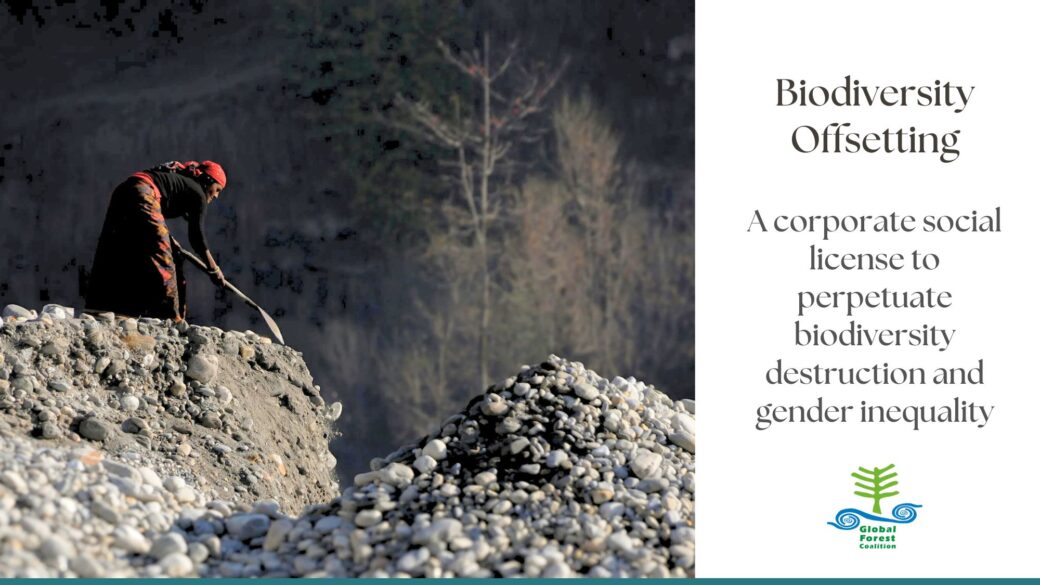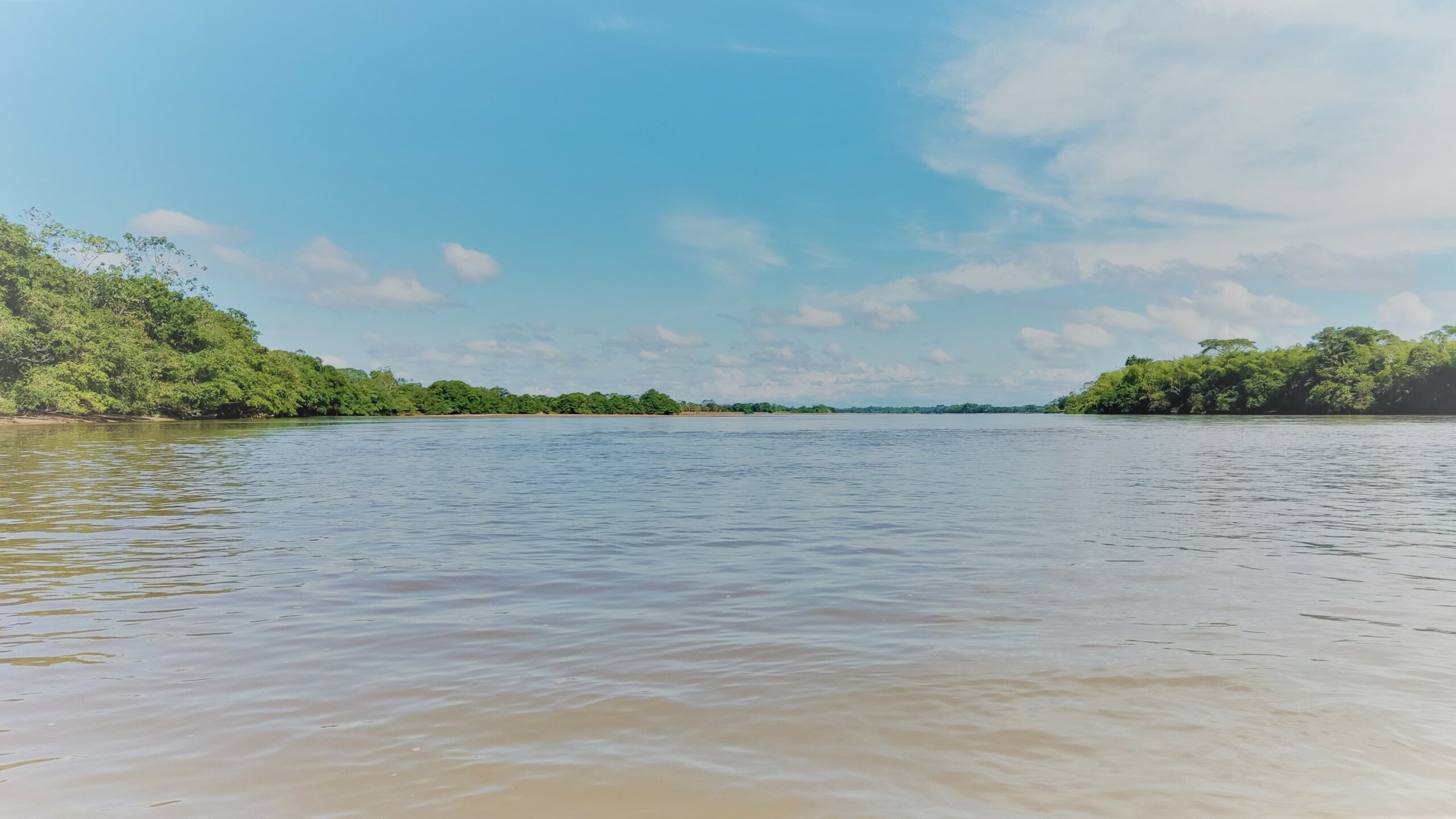The False Promise of Biodiversity Offsets: Launch of a New Analysis by GFC

The False Promise of Biodiversity Offsets & the Myth of ‘No Net Loss’
In a pivotal new analysis from the Global Forest Coalition (GFC), launched in the run-up to Biodiversity COP in Cali, Colombia, we take on the myth of “No Net Loss,” the history of offsets, and the real reasons this conservation tool appeals to the most environmentally and socially destructive industries
Download the analysis in English here
“The time for talk is done; it is now the time for action.” — Inger Andersen, IUCN World Conservation Congress 2016
This pivotal study from the Global Forest Coalition critically examines the growing reliance on biodiversity offsetting as a tool for conservation in light of the Kunming-Montreal Global Biodiversity Framework (KM-GBF). As multinational corporations, governments, and major conservation organizations increasingly advocate for offsets, this study dives into the complex implications of such practices on ecosystems, community-led biodiversity protection, the rights of Indigenous People and local communities, women in all their diversities, and Afro-descendant communities.
Understanding Biodiversity Offsetting
Proponents of offsets argue they can achieve “no net loss” of biodiversity by allowing developers to destroy habitats in one area while promising to restore or protect another. However, this approach raises significant ethical and ecological concerns. While biodiversity offsetting is frequently marketed as a conservation solution, it often falls short of genuinely protecting biodiversity and instead, leads to serious social and cultural repercussions, particularly for women. Conservation efforts can restrict land access, impacting livelihoods and socio-cultural activities. This is especially critical for Indigenous Peoples, as it disrupts their cultural practices and fundamentally changes their connection to the environment.
The Controversy Surrounding Offsets
While biodiversity offsets appear to offer a pragmatic solution to conservation, they frequently come with hidden costs. Industries responsible for substantial environmental degradation—such as fossil fuels and mining—leverage offsets to claim they are supporting conservation, despite often resulting in the loss of critical habitats. This leads to a troubling double land grab: one for economic development and another under the guise of environmental protection.
The study highlights how offsetting practices disproportionately affect structurally and historically underserved communities, especially Indigenous People and local communities, women in all their diversities, and Afro-descendant communities.
The Myth of “No Net Loss”
The narrative of achieving “no net loss” is critically analyzed in this study, and we find that biodiversity offset projects fail to deliver on their promises, often resulting in ecological and social harm. This study emphasizes that biodiversity cannot simply be replaced or traded like commodities; the unique relationships communities have with their land are irreplaceable, as is the inherent and complex value of ecosystems.
The study also questions the integrity of major international conservation groups and NGOs that enter into partnerships with companies and entities that promote conservation through extraction. Governments, under pressure from international financial institutions and corporate interests, have also begun integrating biodiversity offsetting into environmental policies, diluting protections and undermining established community-led biodiversity protection conservation efforts.
A Call to Action
This study serves as a wake-up call, as it advocates for an end to the use of biodiversity offsets and the recognition of biodiversity as an essential element of natural life and livelihoods to achieve transformative outcomes addressing the root causes of biodiversity loss and recognising the role of Indigenous Peoples, women in all their diversities, and local communities in conserving and protecting biodiversity.
As the world prepares for COP 16 in Cali, Colombia, from October 21 to November 1, 2024, this study aims to inform discussions on biodiversity finance and conservation practices, pushing for genuine accountability and integrity in biodiversity conservation efforts.
For more information and to access the full study, please visit Biodiversity Offsetting: A Corporate Social License to Perpetuate Biodiversity Destruction and Gender Inequality.











